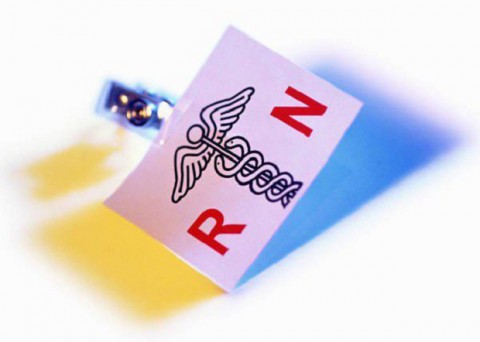 A career as a registered nurse can offer the perfect combination of good pay, robust employment prospects and great personal satisfaction. Each day, millions of registered nurses (RNs) across the country and around the world make a real difference in patients’ lives. Nurses get to see the results of their hard work, such as a child recovering from a serious illness, an elderly patient regaining her mobility or a young father returning to his family, healthy and strong.
A career as a registered nurse can offer the perfect combination of good pay, robust employment prospects and great personal satisfaction. Each day, millions of registered nurses (RNs) across the country and around the world make a real difference in patients’ lives. Nurses get to see the results of their hard work, such as a child recovering from a serious illness, an elderly patient regaining her mobility or a young father returning to his family, healthy and strong.
As the baby boom generation ages it will require more healthcare services; at the same time, medical technology is advancing, helping keep people alive for longer. It all adds up to a need for more RNs.
You might consider a career as a registered nurse if you have patience and compassion, enjoy working with people, and are interested in health, wellness and science.
Job Outlook for Registered Nurses
According to data published in 2012 by the U.S. Bureau of Labor Statistics (BLS), employment for registered nurses is projected to increase by 26% nationwide between 2010 and 2020 – almost double the average growth rate for all occupations. Accelerated growth is expected in traditional hospitals, physicians’ offices, home healthcare services, and outpatient care centers, such as day surgery, chemotherapy and rehabilitation facilities.
Because of the demand for qualified RNs, some employers may offer bonuses, flexible schedules, advanced training and other incentives.
It’s important for prospective RNs to conduct independent research, as job opportunities generally vary depending on location, experience, education and other factors.
Typical Duties for Registered Nurses
The first responsibility of RNs is to restore the health of their patients, whether they are in a physician’s office, nursing home, hospital or their own home. Registered nurse duties will vary according to the employer, type of facility and other factors, but an RN’s job description typically includes:
- Recording medical histories and symptoms
- Administering medicines and treatments
- Establishing care plans
- Observing patients and recording medical information
- Performing tests
- Operating medical equipment
- Consulting with physicians and other medical team members
- Educating patients and their families
- Supervising licensed practical nurses, and nursing and medical assistants
Some registered nurses specialize in certain groups of patients, such as those with cancer, diabetes or heart conditions. Others work solely with infants or the elderly, or in emergency rooms or rehabilitation centers.
Registered Nursing Salary Range
According to the BLS, registered nurses earned a median annual salary of $65,470 in May 2012. The top 10% earned in excess of $94,720, while the lowest 10% earned a salary of $45,050 or less per year.
As is the case with job opportunities, potential salary ranges for RNs differ based on multiple factors.
Education and Training for Registered Nurses
Launching a registered nursing career requires formal education, which can range from graduating from an approved nursing program to attaining an associate’s degree in nursing (ADN) or a bachelor’s degree in nursing (BSN). The minimum education required depends on the employer’s needs and hiring procedures. However, as an RN’s duties become more complex, employers are increasingly requiring at least a BSN for registered nurses.
Nursing programs typically include instruction in anatomy, chemistry, microbiology, psychology and other sciences, along with liberal arts courses such as English and sociology. In addition, prospective nurses undergo supervised clinical training, with hands-on instruction in various hospital departments, public health agencies or clinics.
In all 50 states and the District of Columbia, registered nurses are required to be licensed, which entails completing an approved nursing program and passing the National Council Licensure Examination (NCLEX-RN).









